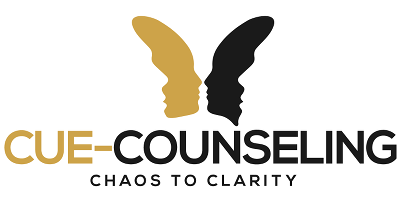Understanding Orthorexia in 2024
With access to more information on fitness and nutrition than ever, people are increasingly conscious of healthy eating. While this shift is generally positive, an extreme obsession with food purity can lead to orthorexia, an eating disorder that is often overlooked.
Let’s explore what orthorexia is, how it manifests, and how to seek help if you or someone you know is struggling with it.
What Is Orthorexia? Signs and Symptoms
Orthorexia is characterized by an unhealthy fixation on eating only “pure” or “healthy” foods. Individuals with orthorexia strictly adhere to dietary rules, believing that any deviation will harm their health.
According to the National Eating Disorders Association (NEDA):
“People with orthorexia become so fixated on so-called ‘healthy eating’ that they actually damage their own well-being and experience health consequences such as malnutrition and/or impairment of psychosocial functioning.”
Key Symptoms of Orthorexia:
- Obsessive focus on food purity – avoiding anything deemed “unhealthy”
- Strict dietary restrictions – such as only eating organic, vegan, or gluten-free foods
- Excessive time spent analyzing food ingredients and meal planning
- Avoidance of social gatherings due to food concerns
- Loss of enjoyment in eating – viewing food as purely functional
- Judgment of others’ eating habits – feeling superior based on diet choices
- Heightened anxiety about food availability at events
- Self-punishment for perceived dietary mistakes
Physical Health Consequences:
- Nutritional deficiencies
- Osteoporosis and weakened bones
- Anemia due to inadequate iron intake
- Low body weight and slowed metabolism
- Irregular heart rate
- Hormonal imbalances leading to amenorrhea (missed periods) and infertility in women
Unlike anorexia or bulimia, which focus on food quantity and weight control, orthorexia is centered on food quality and perceived health benefits. The condition is often linked to perfectionism and anxiety, making treatment complex.
Who Is Affected by Orthorexia?
Research suggests that orthorexia affects both men and women equally, unlike anorexia and bulimia, which predominantly impact women. However, further peer-reviewed studies are needed to determine broader demographic trends.
How Is Orthorexia Treated?
Recognizing the Disorder
One of the biggest challenges in treating orthorexia is awareness. Because strict dietary habits are often praised in wellness culture, sufferers may not recognize their behavior as harmful. The first step is to ask yourself:
- Are you at a healthy weight?
- Is your diet negatively impacting your daily life?
- Do you feel anxious or guilty about food choices?
- Are you isolating yourself due to food concerns?
Treatment Approaches
- Medical and Nutritional Support:
- Consulting a doctor or dietitian to address nutritional deficiencies.
- Learning to balance a diet without extreme restrictions.
- Cognitive Behavioral Therapy (CBT):
- Reframing harmful food beliefs.
- Recognizing that no diet needs to be “perfect” to be healthy.
- Managing Anxiety and OCD-Like Behaviors:
- Exposure therapy to gradually reintroduce feared foods.
- Mindfulness techniques such as meditation and breathing exercises.
- Structured meal planning to create a more flexible and nourishing diet.
- Education on Nutrition Misinformation:
- Differentiating between science-backed nutrition and diet fads.
- Understanding that balance, not rigidity, leads to long-term health.
Healing the Relationship with Food
Recovery from orthorexia isn’t just about food—it’s about rebuilding a healthy connection between body and mind. The goal is to shift from restrictive control to intuitive eating, where you listen to your body’s hunger and fullness cues.
According to Psychology Today:
“A healthy relationship with food involves paying attention to biological signals of hunger and satiety and the balance of foods that allow one to feel healthy and full.”
The Importance of Enjoyment in Eating
A truly healthy lifestyle isn’t just about discipline—it includes enjoyment. Food should be satisfying, social, and nourishing, not a source of fear or guilt. Instead of striving for dietary “perfection,” focus on flexibility and balance.
If You’re Struggling with Orthorexia, Seek Help
If you recognize signs of orthorexia in yourself or a loved one, reaching out for professional support is essential. Recovery is possible, and with the right approach, you can develop a healthier, more sustainable relationship with food.
1. National Eating Disorders Association (NEDA)
Anchor Text: Learn more about orthorexia symptoms and treatment
URL: https://www.nationaleatingdisorders.org/orthorexia-nervosa
2. Psychology Today – Understanding Orthorexia
Anchor Text: Psychology Today’s insight into orthorexia and healthy eating
URL: https://www.psychologytoday.com/us/conditions/orthorexia
